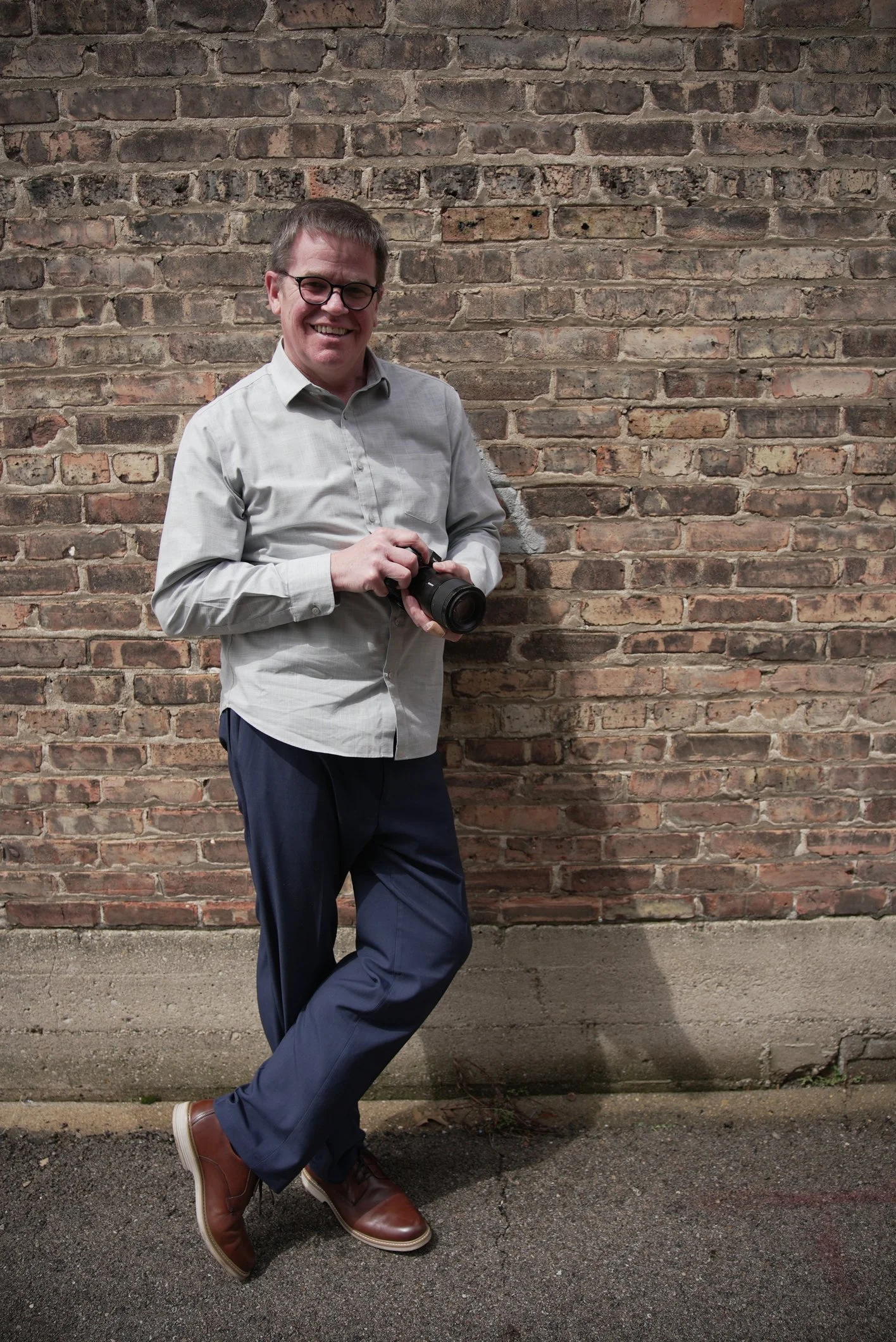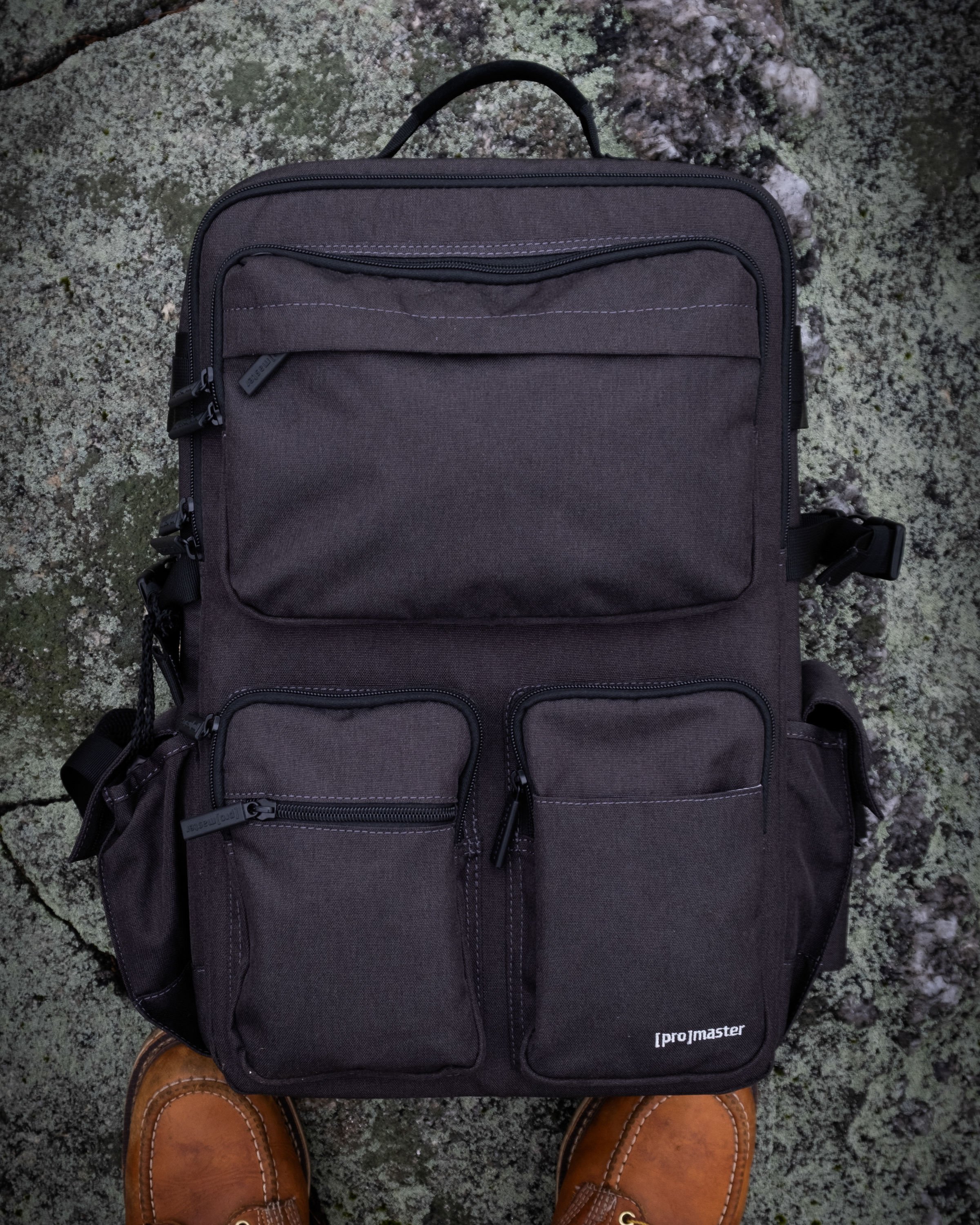Team Spotlight: David Seigel
ProMaster products are designed, marketed, and sold by camera enthusiasts. Everyone on our team is interested in photography and videography on some level. Some are featured in gallery shows, published in photobooks and magazines, while others are building a following on Instagram.
I sat down with David Seigel, Business Relationship Manager for the Midwest region, to learn more about his work at ProMaster, how photography technology has evolved over time, and that he believes the potential for joy that people can derive from their imaging is ultimately the greatest advancement in photography.
1. What do you do here at ProMaster?
I am a business relationship manager for the Midwest region. My job is to make it as easy and as fluid as possible for local camera stores to do business with ProMaster. If they have problems that need to be solved, they need product information, or if they have any other administrative function that needs support, I’m there to help. I work with the stores to talk through any concerns they have and introduce opportunities that might help their business run a little bit better.
2. How did you get into the photography field?
After years working in the grocery industry, I received an opportunity through a family connection to work at a local camera store in the early 1990s. At that time, I had never owned a camera or taken a picture. The owner of the store observed that I had customer service skills and figured that they could teach me the photography end of it. This was before Google and in order to help people, I had to learn the processes of photography - the darkroom and mini lab. The best way to get the information customers wanted was to just go and figure out the solutions they sought. I felt answers based on experience were best.
I ended up working at this store for about 30 years. I left twice, briefly, but I always came back to the camera store because I loved the technology of photography and talking with people about it to help them achieve the images they had in mind. Photography is a very personal activity where people express themselves in a visual way. We had lots of conversations about preserving or restoring memories. And I felt that people were often sharing something deeply anthropological about themselves through their photography.
3. What do you love about photography?
There are a lot of things I love about photography, but they are not about being a photographer. I love the technology and the equipment. I love the math that goes into making a good exposure. I love comparing lenses, camera bodies, flashes, lights, and even the support products. All of that is very satisfying to me.
I love the people, the conversations that I have - that little glimpse into something deeply personal about people. Whether it's something that they're creating or something that they are recreating. They are sharing something very personal about themselves. And I love the sense of connection that I get in those conversations.
4. What are some photographers you admire?
Nate Lerner (fellow coworker at ProMaster). He is not only a photographer that I admire, he's a human being that I admire very much. When I looked at his gallery of images online there was one that just really spoke to me. I just kept going back to his website and looking at the image over and over. I decided to order that print from him to hang in my office, and I look at it all the time.
Photo Credit: Nate Lerner
There’s also a photographer named Sandro Miller based in the Chicago area. He just goes by Sandro. He's an amazing portrait photographer who puts his subjects in their expected environments and always seems to make the subjects stand out rather than blend in to their environments. He is best known for his images of John Malkovich on a stage set, and Michael Jordan in a basketball or business arena.
4. What makes for a successful photograph?
A successful photograph is something that achieves a visual goal for somebody. And that visual goal may be just producing an image for display. Maybe it's preserving a memory, whether it's something that's going to be displayed or put into a photo album; or maybe it's a creative statement that somebody has. When they are able to express that thought, in a visual format, they have succeeded with their photograph.
5. Based on your experience in photography technology, are you team film or team digital?
I am team digital. There’s so much more potential for resolution, color space, and dynamic range. Certainly people will argue about the aesthetic differences, and I certainly allow for those differences. For me capturing the maximum potential in an exposure from dark to light, where detail is reproduced accurately, is very appealing. On a digital camera this spectrum can be adjusted when the picture is taken or after the picture is taken. If a person just chooses an easy approach, it's there, or if they prefer to massage an image to yield the greatest potential range, that is also there in a variety of ways.
6. What is some of the cooler technology you’ve seen over the years?
I started working in the very, very early days of autofocus, something that we just take for granted now. Today, we have products that focus so fast and accurately. I have watched people put a camera to their eye and pull it away, wondering if it actually worked because the image was so immediately clear in the viewfinder that they didn't even see the camera and the lens achieve focus. It happened so instantly. That is still baffling technology to me. I understand how it works, but the speed at which it works feels almost beyond human comprehension.
7. What do you think is the future of photography? Where do you see the future of photography and image making?
Advancements in lighting technology will be one of the things that constantly inspires creativity from visual artists. Approachable pricing and capable technology are opening up more possibilities for people to explore creative lighting.
We can achieve any sort of lighting quality either through the capability of the light fixture itself, or in the camera through a white balance setting or a color preference setting made by the photographer. I would say constant lighting advancements are going to seriously stoke interest in photography, because it is still all about the light.
8. What are your favorite ProMaster products?
The Air Support Monopod is way up there as an easy, portable solution for stability out in the field. My Cityscape 71 Backpack is an almost constant companion that goes to work with me most days. My Specialist 19 inch RGB ring light lights up my work area every day.
9. Lastly, tell me a little bit about yourself outside of work:
I really like to read nonfiction; histories are fascinating to me and biographies are certainly cool. I like to read a lot of technical information that is census-based to find out why certain populations or trends arrived where they did. That sort of data is interesting to me.
I love theater. And though I'm not a creative person myself, I love to go and see good art, whether it's painting, sculpture, photography. I don't consider myself necessarily a visual person, but I appreciate the things that people create, and can observe them as beautiful.








